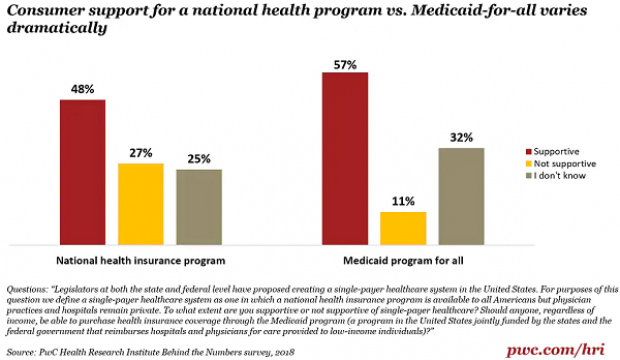Most Americans support the expansion of Medicaid to provide universal health care coverage, according to a recent study by the Health Research Institute at PricewaterhouseCoopers. But while there is considerable interest in the U.S. in the creation of a health care system that provides insurance options for all citizens, the researchers found there is also ambivalence about how to achieve that goal.
In a national survey on national health care plans, 48 percent of respondents said they would support a single-payer health-care system, defined as “one in which a national health insurance program is available to all Americans but physician practices and hospitals remain private.” A higher percentage, 57 percent, supported a proposal to offer health insurance through Medicaid to all citizens, regardless of income.
While the likelihood of Congress passing a universal health care plan soon is “vanishingly small,” the researchers noted that proposals for such programs are making headway at both the state and federal level. Most plans offer a mix of payers and providers, both public and private, and none propose sole government ownership of health care providers. Another common feature of the proposals: Few offer a comprehensive plan for how to pay for universal care.





